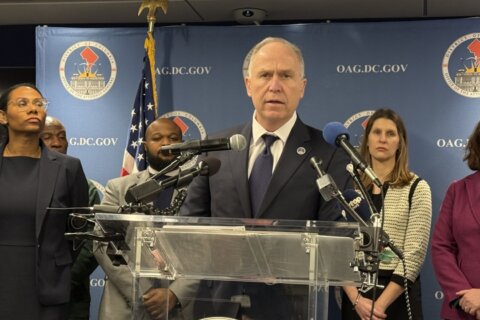The D.C. Council passed a bill Tuesday to provide free period products at every middle school and high school in the city.
Council Member Brooke Pinto, who introduced the Expanding Student Access to Period Products Act of 2021, told WTOP that the products will have to be available in every women’s and gender-neutral bathroom at every public, private and charter school in the District.
If a school doesn’t have a gender-neutral bathroom, it will be required to have period products in one men’s bathroom.
She said schools will have the flexibility on how many hygiene products to give out and what kind of receptacles they will be held in, but she said schools will be required to replenish the items at a “reasonable rate.”
“That’s a similar standard we have with toilet paper in our schools,” said Pinto. “Students are expected, rightfully so, to have access to toilet paper when they use the restroom. And the idea here is that they should absolutely have access to period products as well.”
The bill also mandates that all public and charter schools in D.C. begin teaching health classes about menstruation to students starting in the fourth grade, regardless of gender.
Pinto campaigned on the issue of period equity and said she’s heard from students who struggled to pay for tampons or pads, with some even missing school because of it.
“These products are a basic health necessity for over half of our population every month and really shouldn’t be treated as this luxury, inaccessible and expensive item.”
A survey in 2019 commissioned by Thinx, a period product company, found that about 1 in 5 American teens are not able to easily access period products — what’s known as “period poverty” — and found that number has only increased since then. It also found that students of color and those from lower-income families are particularly affected by period poverty.
Pinto said the bill would cost the city $1.4 million a year. She said she expects Mayor Muriel Bowser to sign it within the next month, and it would be implemented soon after.
A spokesperson from Bowser’s office told WTOP that the administration supports the bill.
It was sponsored by seven other council members, including every female member on the 13-person council.








